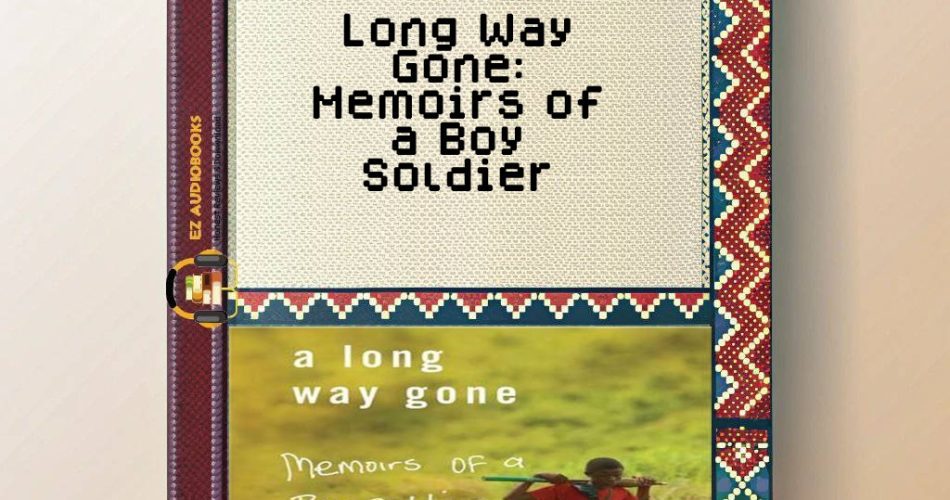Audiobook Sample
Listen to the sample to experience the story.
Please wait while we verify your browser...
- Title: Long Way Gone: Memoirs of a Boy Soldier
- Author: Ishmael Beah
- Narrator: Ishmael Beah
- Length: 07:45:00
- Version: Abridged
- Release Date: 20/03/2007
- Publisher: Macmillan Audio
- Genre: History, Biography & Memoir, Africa, Military
- ISBN13: 9.78E+12
There are books that entertain, books that educate, and then there are books that rearrange your understanding of humanity. Ishmael Beah’s “A Long Way Gone: Memoirs of a Boy Soldier” belongs firmly in that last category. As someone who has spent years documenting human stories across continents, I can say this audiobook experience left me sitting in silent contemplation long after the final chapter.
Listening to Beah narrate his own story creates an intimacy that print simply cannot match. His voice – sometimes trembling with remembered fear, sometimes flat with the numbness of trauma – carries the weight of lived experience. It reminds me of those evenings in Oaxaca, where the grandmother’s storytelling made history feel alive and immediate. Here, Beah does the same with his personal history, making the unimaginable real through the sheer power of his voice.
The story unfolds like a slow-motion nightmare you can’t look away from. We follow 12-year-old Ishmael as his world collapses – first fleeing rebel attacks, then being conscripted into the government army, and finally becoming what every child should never be: a soldier hopped up on drugs and wielding an AK-47. The details are visceral – you can almost smell the gunpowder, taste the bitter pills of ‘brown brown’ (a mix of cocaine and gunpowder), hear the screams that haunt his dreams.
What makes this audiobook particularly powerful is how Beah’s narration captures the psychological journey. His voice changes subtly as he recounts his transformation – the innocent curiosity of childhood giving way to the hollow affect of a child soldier, then gradually returning to something approaching normalcy during rehabilitation. This audio performance adds layers of meaning that would be lost on the page.
As a travel writer, I’ve walked through post-conflict zones and seen the aftermath of war, but Beah’s account provides something no observational journalism can – the internal landscape of a child caught in hell. His descriptions of Sierra Leone’s natural beauty, now juxtaposed with violence, reminded me of driving through Rwanda’s lush hills while listening to accounts of the genocide. There’s a particular heartbreak in hearing paradise transformed into a killing field.
The audiobook excels in its unflinching honesty. Beah doesn’t sensationalize nor does he shy away from the terrible acts he committed. His matter-of-fact delivery of these passages is perhaps the most chilling aspect – a reflection of how war makes atrocity routine. Yet within this darkness, glimmers of humanity persist – a rap cassette that becomes a lifeline to his former self, the nurse who refuses to give up on him, the transformative power of storytelling itself.
Technically, the production is excellent. The pacing allows moments to land with appropriate weight, and the audio quality is crisp throughout. At just under four hours, it’s a relatively short listen, but every minute carries profound impact. The decision to have Beah narrate his own story was inspired – no professional actor could bring this level of authenticity.
If I have any critique, it’s that some listeners might want more detail about Beah’s rehabilitation process and current life. But this isn’t that kind of memoir – it’s a focused, searing account of descent and partial return. For those interested in broader context, I’d recommend pairing this with “War Child” by Emmanuel Jal or “They Poured Fire on Us From the Sky” by Deng et al.
This isn’t an easy listen, but it’s an essential one. In a world where child soldiers still fight in dozens of conflicts, Beah’s story serves as both warning and testament to resilience. The audiobook format makes his journey feel particularly immediate – when he describes running through the forest, you’ll find yourself holding your breath; when he speaks of lost family, you’ll feel the ache in his voice.
With ears open to difficult truths,
Marcus Rivera

